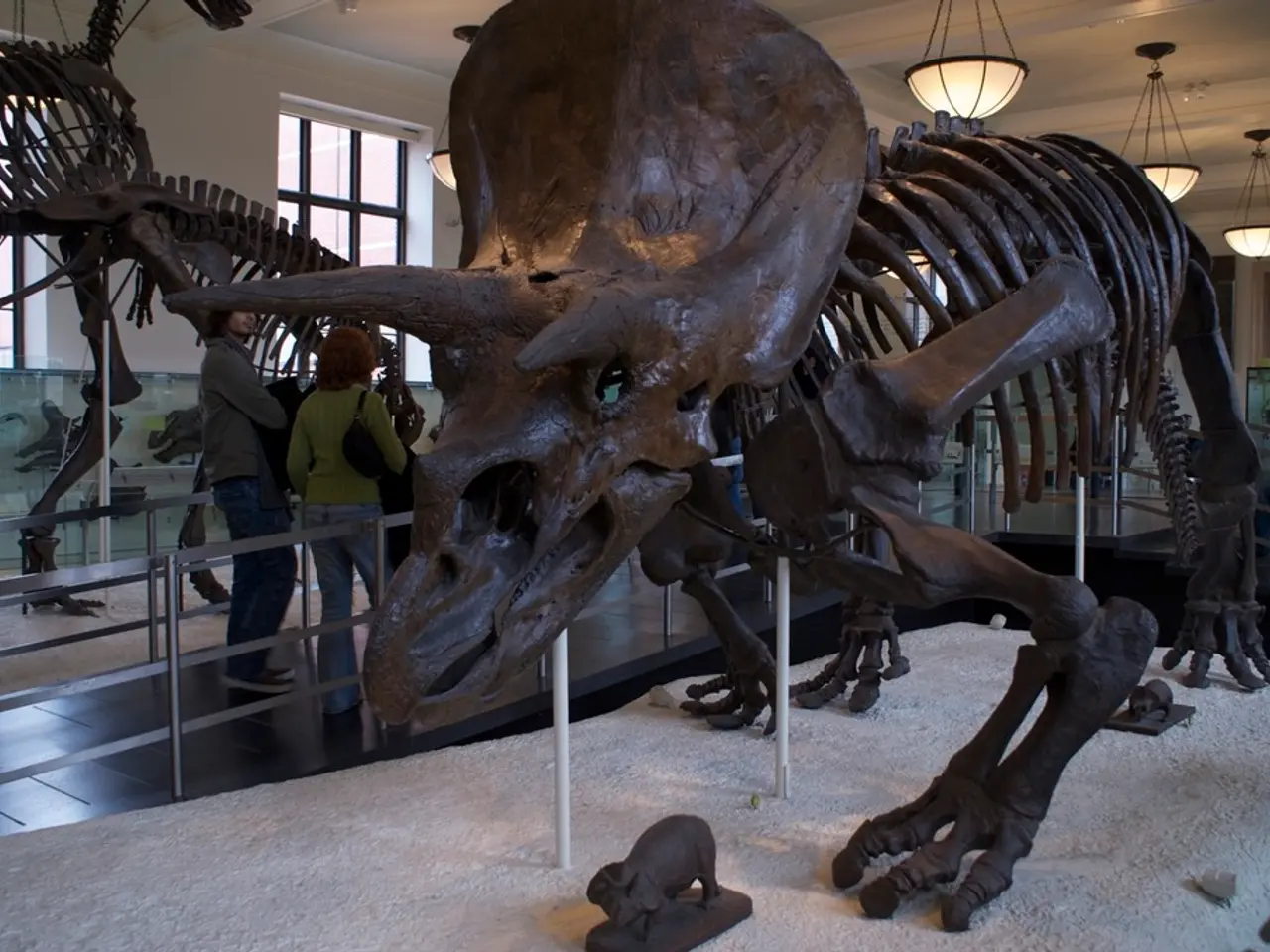Mars' colossal stone fetched a high price at the auction, yet questions linger about its origin, particularly from the government of Niger.
In November 2023, a significant discovery was made in Niger's Agadez region – the largest Martian meteorite ever found on Earth, named NWA 16788. Weighing approximately 24.5 kilograms, this Martian relic was later sold at Sotheby's auction in New York for a staggering $5.3 million in July 2025. However, the sale has sparked controversy as Niger's government was not notified of its export, leading to an investigation into possible illicit international trafficking.
The meteorite's journey began with the local community selling it to an international dealer. It was then studied by scientists from the University of Florence and briefly displayed at the Italian Space Agency in Rome before being shipped to Sotheby's in New York. The exact details of the export process remain unclear, with Niger's government questioning whether any local or international laws were circumvented.
Niger's cultural heritage law, passed in 1997, mentions mineralogical specimens but does not explicitly address meteorites. This legal grey area has fueled the debate surrounding the Sotheby's sale. The auction house maintains that the meteorite was legally obtained and exported in accordance with all relevant international procedures and agreements.
In response to the controversy, Niger's government has launched a formal probe involving multiple ministries to determine the original finder, the export process, and the legal ownership of NWA 16788. As a precautionary measure, President Abdourahamane Tiani has suspended the export of all precious stones and meteorites pending improved traceability and regulatory measures.
The legal implications of this case centre on whether the meteorite export violated Niger's cultural heritage protections or international trafficking laws. If it can be proven that the meteorite was not stolen and properly declared upon import into the U.S., recovering NWA 16788 would be challenging for Niger.
Meanwhile, plans are underway to build a new museum in Niger to house the country's natural and cultural artifacts, including future meteorite finds. This museum aims to preserve and showcase Niger's unique heritage.
The debate over the Sotheby's sale of NWA 16788 underscores the importance of clear laws regarding meteorites and cultural artifacts. Experts suggest that Niger would need to prove ownership and that the meteorite was stolen to recover it. Paleontologist Paul Sereno, who has worked in Niger for years, believes that meteorites should not be taken from a country if they are considered cultural artifacts.
This controversy serves as a reminder of the challenges in regulating valuable space rocks found in regions with evolving legal frameworks around natural heritage exports. As space exploration continues to uncover more cosmic treasures, it is crucial for countries to establish clear and comprehensive laws to protect these unique pieces of our solar system's history.
Read also:
- Germany's three-month tenure under Merz's administration feels significantly extended
- United Nations Human Rights Evaluation, Session 45: United Kingdom's Statement Regarding Mauritius' Human Rights Record
- Hurricane-potential storm Erin forms, poised to become the first hurricane in the Atlantic Ocean this year.
- Europe endures a sweltering heatwave, amplifying the risk of wildfires in France.








